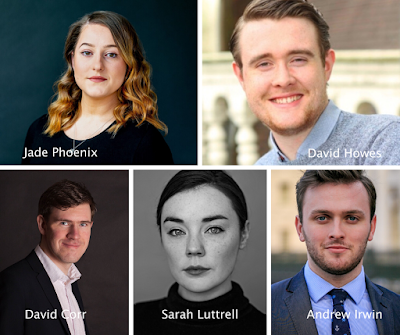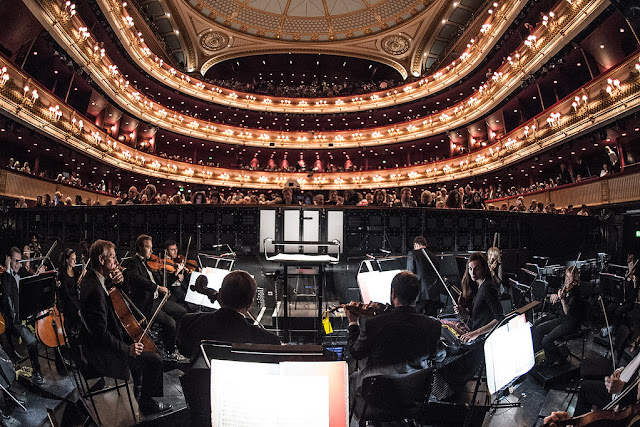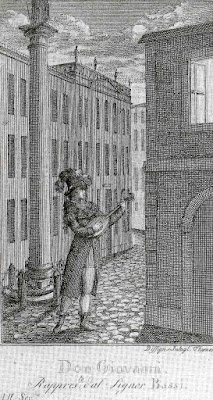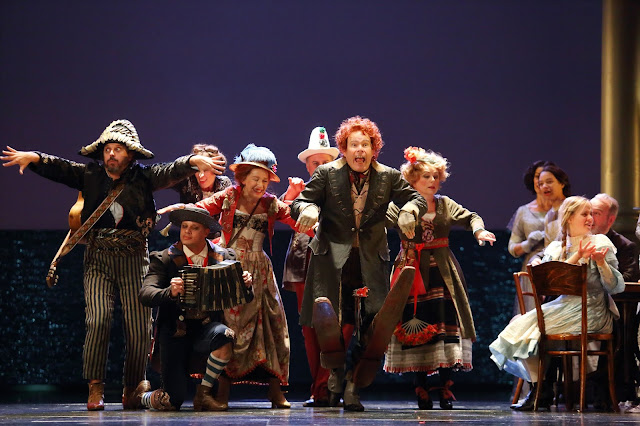So ENO have announced their 2012/13 season. All in all it is an interesting programme and one which covers a few areas that other major companies do not. That said, there are a few gaps. No Wagner for a start. Evidently, at the press conference, John Berry talked about the expense of Wagner and the difficulty of getting singers to perform him in English. This probably chimes in with another gap in the programme, the absence of the some of the senior ranks of UK singers. There are quite a few names (Andrew Shore, Susan Bickley, Matthew Best, Anthony Michaels Moore, Sarah Connolly), but there are many more who are not here and quite a few of those are the ones who might have sung Wagner. It is a shame that some way of staging Phyllida Lloyd's complete Ring cycle. It wasn't one which I like very much, but having invested so much into it surely some way could have been found...
Another area lacking in this season is the presence of untried film directors in the hot seat. And for this, hurrah.
The highlight of the season is something, frankly, that I never expected to see - Vaughan Williams
Pilgrims Progress. This is to receive its first fully professional UK staging since the 1950's. It was staged very successfully by the RNCM and there have been two semi-stagings of the work. ENO are entrusting the direction to the Japanese director Yoshi Oida, so don't expect a traditional production. A young cast includes Roland Wood in the title role, with Benedict Nelson as the Evangelist conducted by Martin Brabbins.
Another new production is Handel's
Julius Caesar, directed by Michael Keegan-Dolan, artistic director of Fabulous Beast Dance Theatre; the production will be a co-production with Fabulous Beast so expect something rich and strange. Lawrence Zazzo will be taking the title role with Anna Christy as Cleopatra, Patricia Barden as Cornelia and Tim Mead as Tolomeo. Christan Curnyn conducts.
Still in the baroque, Charpentier's
Medea makes a welcome appearance with Sarah Connolly in the title role and Jeffrey Francis as Jason; David McVicar directs.
Rupert Goold returns with another new production, Berg's
Wozzeck. Though I do hope that his
Turandot makes a return as well sometime. Still in the earlier 20th century Richard Jones is doing a new production of Martinu's
Julietta with Peter Hoare, Andrew Shore and Susan Bickley, conducted by Edward Gardner. It is an opera that I don't know well, so am curious.
Two new productions are being bought in. Cailixto Bieito's
Carmen which has already got something of a track record. At the Coliseum the title role will be taken by the Roumanian mezzo-soprano Ruxandra Donose (couldn't a British singer be found?). The last
Carmen does not seem to have lasted to this one is probably intended to be disposable as well. Peter Konwitschny will be working at the Coliseum for the first time, bringing his production of
La Traviata. A rather radical re-working which strips the production down and plays without an interval. The last 2
Traviatas both made a poor showing, so here's hoping!
The final 2 new productions are contemporary. Michel Van der Aa makes a welcome appearance in the UK with a new opera call
Sunken Garden a collaboration with author David Mitchell. This is an ENO co-commission and receives its premiere at the Barbican. And no, I'm not going to mention the 3-D glasses.
The final new production is the most forgettable, but its the one which has had everybody salivating. A new Philip Glass opera based on a sensational book about Walt Disney's final days. Christopher Purves takes the title role and the piece will be directed by Phelim McDermott and his company, Improbably, who were responsible for
Satyagraha.
Of the revivals, one stands out. Deborah Warner's
Death in Venice returns with John Graham-Hall finally getting a chance at the title role having garnered good reviews when the production went to Italy.
Of the other revivals we have what is promised to be the last of the Nicholas Hyntner
Magic Flute, Jonathan Miller's
Mikado, Jonathan Miller's
Barber of Seville and Jonathan Miller's
La Boheme. The Barber is notable for having Benedict Nelson as Figaro, Lucy Crowe as Rosina, Andrew Kennedy as Count Almaviva and Andrew Shore as Doctore Bartolo - a rather wonderful cast.
Evidently 80% of the cast are UK based and the inclusion of major works by Britten, Handel and RVW does give the season an English feel. But, the continued emphasis on non-UK composers for high profile commissions means that the whole season comes over as being not very English National. Certainly having Glass and Van der Aa gives us something of a buzz, but couldn't that have been achieved with more of a UK vein.






















.jpg)

.jpeg)





.jpeg)